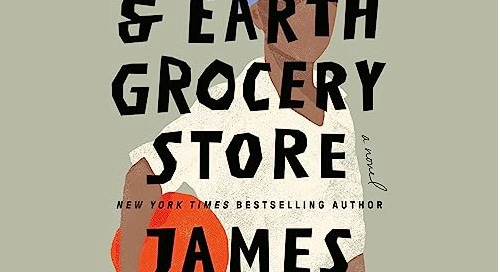BookLife Review by Carol O'Day: The Heaven & Earth Grocery Store (James McBride, author)
National Book Award winner, Pottstown PA, 1936, Jewish and African American communities, deaf and disabled characters, ASL, racial injustice, integration, jazz music, murder mystery
The Heaven & Earth Grocery Store, by James McBride, is a meaty and complex read, and is the winner of the National Book Award. The book opens with an unsolved murder, a skeleton found in a well in 1972 in Pottstown, Pennsylvania, but it not really a murder mystery. It is a story of the people of Pottstown in the 1936 and 1937. Located outside of Philadelphia, Pottstown then is inhabited by a mix of white Christian, black and Jewish people. The area of town known as Chicken Hill is the domain of the European immigrant Jews and many of black residents who had migrated from southern states. Moshe Ludlow owns a theater in Pottstown. He is a pioneer of sorts, and integrates the theater ahead of his time, to offer jazz and other music which draws black patrons. His wife, Chona, operates a grocery store that serves the entire community.
This is not the story of only Moshe and Chona. The book introduces a multitude of characters, exercise patience to render both the major and minor players in the drama, and orchestrates and extraordinarily slow build to the crisis and drama in the story. The large cast of players includes the strong, silent and mysterious Nate Love Timblin, his wife who stoically works in the grocery store, as well as many colorful bit players like Fatty, Big Soap, Dodo, and Monkey Pants, characters who are unique and beautifully rendered. If fact, there are so many characters that at times the forward motion of the novel stalls and the book’s themes blur.
McBride writes beautifully and in the telling of the lives of these characters, he parses the uniquely American issues of race and ethnicity, bigotry and segregation. He also exposes the ugliness of bias around differently abled or disabled people, who rarely appear as fully realized characters in literature as do Chona, who has a limp, and Dodo who is hearing impaired. Yet, the complex rendering of the lives of the characters dominates the story and somehow sidelines the plot, which though perhaps intentional, is also sometimes the book’s Achilles heel. McBride, an acclaimed jazz musician as well as an author, almost improvises and riffs through character development, setting aside plot to create a picture of a multi-racial and multi-ethnic community; the tensions, intersections and communions of the characters at times at loom at the expense of pace and plot.




